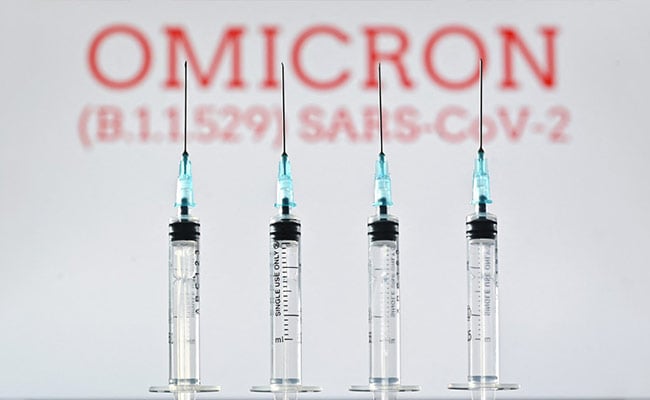What We Know and What We Don’t


Omicron’s genetic makeup leads to many changes to the mutant protein that can make it contagious
Paris:
Omicron is a variant of Covid-19 that was first sequenced in South Africa with cases now present in more than 20 countries and on all continents.
It was only named a week ago and it will take time to understand its impact on the pandemic.
Below is a summary of what we know and the questions surrounding the new version of the virus.
Where did it come from?
We do not know. South African epidemiologist Salim Abdool Karim said it was first detected in Botswana and then in South Africa, where the announcement of the new variant was made on November 25.
On Tuesday, Dutch authorities announced that six days earlier on November 19, an individual had tested positive for what also turned out to be the Omicron variant.
However, the World Health Organization (WHO) said “the first laboratory-confirmed case was identified from a specimen obtained on 9 November 2021”, without specifying where. where.
“It has probably been circulating in South Africa longer than we thought – since the beginning of October,” Jean-Francois Delfraissy, chairman of the French government’s scientific advisory council, told AFP.
Why is it “concern”?
The day after South Africa’s announcement, WHO named the new variant after a Greek letter, like its predecessors, and classified it as a “concern” variant.
The classification is based on Omicron’s genetics and also how it has performed in the population so far.
Omicron’s unique genetic structure leads to many changes to the mutant protein that could make it more contagious and harder to control through current vaccines – but these possibilities so far have been theory.
Meanwhile, cases in South Africa’s Gauteng province, including Johannesburg, have increased rapidly with many being identified as Omicrons.
Researchers around the world are looking at how contagious Omicron is, how severe the disease it causes and whether it is more resistant to vaccines.
The WHO says the process will likely take several weeks.
Will it replace Delta?
The Delta variant is currently the most sequenced form of Covid globally.
The naturally competitive variants that developed after Delta (such as the lesser known Mu and Lambda) have not been able to overcome it in the population – but the spread of Omicron in Gauteng suggests it can.
On Thursday, the European Center for Disease Control (ECDC) said that if the model in South Africa was replicated in Europe, Omicron could generate the majority of Covid cases within months.
However, Delta has never had much of a presence in South Africa, so it’s hard to compare with Europe at this stage.
Writing in the British daily The Guardian, US expert Eric Topol said it was unclear whether the spread of Omicron was due to “high transmissibility, like Delta, or to immune evasion”.
Immune evasion is when a virus can infect a person who has acquired immunity from a previous infection or vaccination.
Is it more dangerous?
On Sunday, a South African doctor said she had treated about 30 cases of Omicron and experienced only “mild symptoms” in these patients.
The scientific community cautions against drawing conclusions based on this testimony as the patients are mostly young and therefore at low risk of severe Covid.
To date, all cases detected in Europe have been “asymptomatic or mildly symptomatic”, according to the EDCD.
This is not to say that Omicron will not cause severe Covid – but it does open the door to a rare optimistic hypothesis.
“If Omicron is very contagious but doesn’t cause severe Covid (and doesn’t fill hospital beds), it could confer immunity to the group and contribute to making SARS-CoV-2 a virus that can’t be found. seasonal benign withdrawal, helping to end the crisis.” French virologist Bruno Canard tweeted.
However, he added that such a scenario would be a “lucky one”.
What about vaccines?
Again, it’s too early to say whether the vaccine will be less effective against transmission or severe disease from Omicron than other variants.
“We have to see if the antibodies produced by current vaccines still work and to what extent – whether they still prevent severe disease,” said Enouf.
Pending real-world data, scientists are trying to answer this question through lab tests.
But even if the vaccines are less effective against Omicron, that doesn’t mean they will be completely ineffective.
In addition to the antibody response that can be impaired by mutations in Omicron, the body also has secondary T-cell responses that can protect against severe disease.
“We think the cellular response will be partially effective for Omicrons,” says Delfraissy.
(Except for the title, this story has not been edited by NDTV staff and is published from an aggregated feed.)




